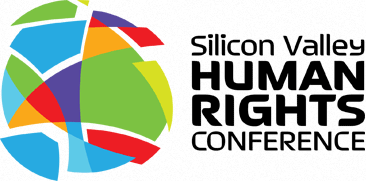Silicon Valley Meets Net Freedom

The Silicon Valley Human Rights Conference in San Francisco this week sought to connect tech companies that build tools and services that are used in challenging political environments with the activists and human rights groups that use them. As is widely recognized, particularly since the Arab Spring uprisings, these technologies often cut both ways in that they can be used by the good guys in support of political freedom and democratic development, or by tyrants to supress speech, access to information and monitor or surveil citizens. We've blogged about these issues extensively here at NDITech.
The discussions were fantastic and covered a wide range of issues from corporate transparency to censorship and "take-down" policies among many other topics. If you've only got time for one session, I'd recommend looking at the notes from the opening session of Day 2 faciliated by John Markhoff of the NYT - Victoria Grand from YouTube, Michael Meehan from the Broadcasting Board of Governors (BBG) and the others had a fascinating conversation about censorship (yes, this is where the man boob comments were made). It was an intense session and I thought Victoria was fantastic for reasons outlined in this post below. It even ended with a little hug - so let's hope the video streams are published to see that because while the best notes available for the conference are the live blog posts by our former colleague Katherine Maher @krmaher, I don't think she could have captured that moment. In fact, the entire panel was a very colorful conversation so worth a look. The conference produced a set of principles outlined in the "Silicon Valley Standard" document that is definitely worth checking out as well.
A number of big and small tech companies participated - with Google, Yahoo! and Facebook standing out in my mind as companies that were very forthcoming in sharing their policies and articulating the challenges they face in making decisions about censoring content, conditions under which they are compelled to turn over user data to authorities and other tough issues. Possibly due to hard lessons each has learned in the past, these companies have embraced one of best strategies for success in this difficult area - and that is transparency. The executives that spoke were being frank and transparent about the tough issues they face, how they address them and how decisions are made. This goes a long way toward not only creating better understanding and good will with the human rights community, but also makes using their tools much more predictable and therefore safer to use because decisions can be made with some degree of understanding about consequences.
If the Access team posts the videos of the panels, check out the Mini Keynote Presentations at the end of Day 1 for an example of how companies should not approach transparency with social change groups. The presentation from the AT&T executive was not well received because he essentially recited corporate policy verbatim and didn't share insights into the challenges faced or decision-making processes involved. The Tweet stream (#rightscon) during this part of the meeting gives some of the flavor. (Note that AT&T isn't mentioned on the conference agenda for this session, it must have been a last minute addition.)
The other thing I'd say about the conference was that it was very successful in "bringing it home" for the audience, many of whom are not dealing with human rights issues everyday. It did so in planned and unanticipated ways. There were presentations and back room meetings with activists from several countries across the Middle East including Alaa Abd El-Fatah from Egypt and Chiranuch Premchaiporn from Thailand who both face legal trouble for their activism upon return to their countries; there was a live feed to a demonstration with hundreds if not thousands of people taking place in Yemen, with a live video message directed at the conference itself sending gratitude for the tools they rely on and appealing for support in making them as safe and easy to use as possible. There was a video message from the Secretary of State, Hillary Clinton, and a large contingent of State Department officials in the house that work on these issues from the USG side.
And finally, as the conference closed a spontaneous effort to recognize the work of Arab Spring activist Imad Baazi from Beirut went sadly wrong when in the minutes before he was called to the stage Imad got word via email that two friends were killed in Syria that very day. An emotional moment to end the conference that definitely drove the message home that these are serious issues with real lives at stake.
This was a very worthwhile conference. Brett Solomon and the Access team is to be commended for their effort. I hope this is just the beginning of a long and deepening engagement between the folks who build the tools and those that need to use them in the toughest corners of the world.
